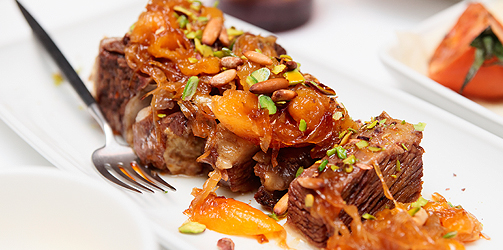Thanks to our previous installments, we now know that meats must be slaughtered in a specific manner to be permissible in Islam (to be Halal), and that pork and alcohol products are always forbidden. However, did you know that these Halal & Haram rules apply to the entire food industry?
Because Canada is a predominantly Christian country, food preparation and ingredients do not necessarily follow Islamic rules. Luckily, with a growing concern for health and well-being, a number of animal-based additives and ingredients are being substituted to alcohol-free vegetarian alternatives. Still, it is important to check ingredient labels to understand what you can eat, and what you should not eat.
Gelatin: Gelatin is a gelling agent made from proteins found in plants and animals. While any plant protein is halal, animal proteins sourced from non-Halal Cut animals is haram. It is best to choose products made with vegetable gelatin, or to avoid gelatin altogether.
Artificial Flavoring & Coloring: Unfortunately, a large number of foods contain added flavoring and coloring. Some artificial additives may contain or have come in contact with alcohol, making the food haram for consumption. Luckily, a push towards natural flavors and colors means less foods have artificial additives, making your favorites halal once again.
Here’s a tip: Judaism is similar to Islam with regards to permissibility surrounding animals and animal by-products. If a non-meat food item is Kosher (designated by a “COR” label on the side of a product), chances are it is safe for Halal consumption.
Even with this information , it can still be hard to distinguish between Halal and Haram. Our directory listing allows you to find a number of certified Halal food vendors in the Greater Toronto Area. That’s why Zhaboom is there to help.


